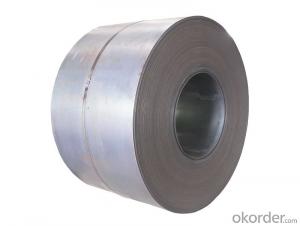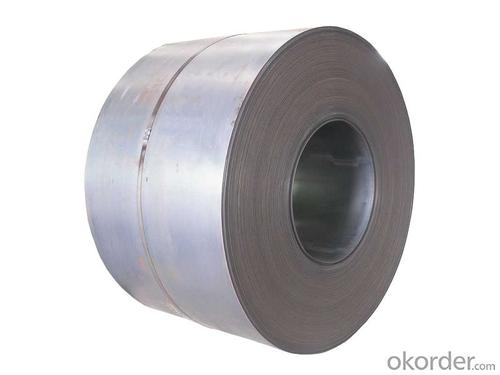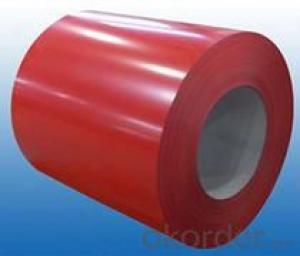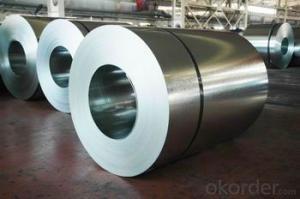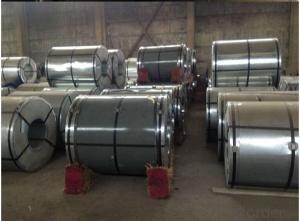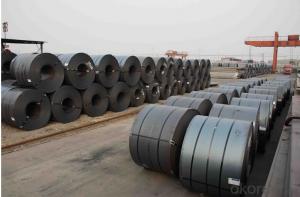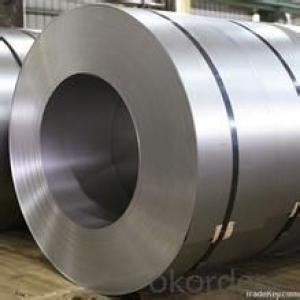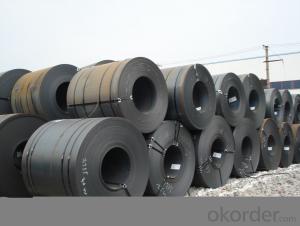Hot Rolled Steel Coils / Sheets
- Loading Port:
- China Main Port
- Payment Terms:
- TT OR LC
- Min Order Qty:
- -
- Supply Capability:
- -
OKorder Service Pledge
OKorder Financial Service
You Might Also Like
Hot Rolled Steel Coils/Sheets
Product: | Hot Rolled Steel Coils/Sheets |
Material: | Q195,Q235,A36,SS400,S235JR,Q345,ST37-2, CCSB etc |
Standard : | JIS G3002 GB/T251B |
Technique: | hot rolled |
Thickness | 1.2mm to 200mm |
Tolerance of thickness: | :+/-0.03mm |
Width: | 750mm-2000mm |
Tolerance of width: | :+/-5.00mm (aiming to +/-2.00mm) |
Normal width: | 914mm, 1000mm, 1200mm, 1219mm, 1250mm,1500mm |
Length: | According to requirement |
Coil ID: | 508mm-610mm |
Coil Weight: | 10-25 Metric Tons |
Surface: | Black, Chromate, fingerprint resistant treatment, slight oiled or non-oiled, dry |
Port of Loading: | Tianjin/Shanghai port |
Packaging Details: | Standard export packing or according to the clients required |
Delivery Time | Within 30 days after received 30% deposit or workable L/C |
Payment Terms: | L/C,T/T |
- Q: How does the thickness of a steel coil affect its applications?
- The thickness of a steel coil affects its applications by determining its strength, durability, and versatility. Thicker steel coils are typically stronger and more resistant to bending or deformation, making them suitable for heavy-duty applications such as construction projects, automotive manufacturing, and infrastructure development. Thinner steel coils, on the other hand, are more flexible and easier to shape, making them ideal for applications that require intricate designs or a lightweight material, such as in the production of electronics, household appliances, or packaging materials. Ultimately, the thickness of a steel coil plays a crucial role in determining its suitability for specific applications based on the desired strength, flexibility, and weight requirements.
- Q: What are the common applications of hot-dip galvanized steel coils?
- Hot-dip galvanized steel coils have a wide range of common applications, including roofing and construction materials, automotive parts, electrical appliances, and agricultural equipment. The galvanization process provides excellent corrosion resistance, making these coils ideal for outdoor structures and applications exposed to harsh environments.
- Q: How are steel coils used in the manufacturing of body panels?
- Steel coils are used in the manufacturing of body panels by being processed and shaped into flat sheets or strips. These sheets or strips are then further formed, cut, and welded to create various body panels, such as doors, hoods, and fenders, which are essential components of vehicles.
- Q: I saw a 27 sedan and a 27 Pick-up one had wood wheels the other steel, respectively. Witch one was original or were they both original
- Steel wheels were not available on the pickups until 1929. The cars had the options of steel disc or wood spoke wheels in the mid '20's. I'm pretty sure that '27 was the last year the wood wheels were available on passenger cars.
- Q: hey i was looking to buy a khukuri machete by cas iberia. its made of carbon steel but doesnt say which one. anyone that is into knives and all that know how this would hold up and the rust resistance of it? mostly be used for cutting bush and small trees
- There's no way to tell from the information you posted. Given it's for a machete I would guess it would be a fairly high carbon steel. Rust resistance will be relatively poor. It will last for years though as long as you clean and dry it after use.
- Q: What are the different methods of coil joining for steel coils?
- There are several different methods of coil joining for steel coils, each with its own advantages and limitations. Some of the commonly used methods include: 1. Welding: This is one of the most popular methods of coil joining. It involves using heat to melt and fuse the edges of the steel coils together. Welding can be done using various techniques such as arc welding, resistance welding, or laser welding. It provides a strong and durable joint, but it can be time-consuming and may require skilled operators. 2. Mechanical fastening: This method involves using mechanical fasteners like clips, staples, or bolts to join the edges of the steel coils. Mechanical fastening is relatively quick and easy, and it allows for easy disassembly if required. However, it may not provide as strong a joint as welding and can be susceptible to loosening over time. 3. Adhesive bonding: Adhesive bonding involves using a suitable adhesive or glue to bond the edges of the steel coils together. This method provides a strong and uniform joint, and it can also help to seal and protect the joint from corrosion. However, adhesive bonding may require surface preparation and curing time, and it may not be suitable for high-temperature applications. 4. Interlocking or tongue-and-groove joints: This method involves shaping the edges of the steel coils in a way that they interlock or fit together like a puzzle piece. Interlocking joints provide good alignment and can be easily assembled and disassembled. However, they may not provide as strong a joint as welding or mechanical fastening. 5. Coil-overlapping: In this method, the edges of the steel coils are overlapped and clamped together using mechanical means. Coil-overlapping is a simple and cost-effective method, but it may not provide a strong joint and can result in uneven coil edges. It's important to consider factors such as the application requirements, strength requirements, cost, and production efficiency when choosing the appropriate method of coil joining for steel coils.
- Q: So...that means Wolverine can stab him, right? Because Adamantite is stronger than steel. Correct?
- I don't think Wolverine could stab Superman. The name Man of Steel is just a nickname that was acquired through the years. Just like Superman is able to fly, but when the initial comic came out, he could only, leap tall buildings with a single bound, and is stronger than a locomotive. Of course, now he can fly and is MUCH more stronger than a train! hahahahah. So even though Wolverine is cool, I hardly doubt he could stab Superman...not that he would of course. =)
- Q: How do steel coils contribute to the manufacturing of oil and gas equipment?
- Steel coils are essential in the manufacturing of oil and gas equipment because they provide the necessary raw material for various components. Coils are used to fabricate pipes, valves, tanks, and other critical parts, ensuring their strength, durability, and resistance to high pressure and extreme temperatures. Additionally, steel coils can be easily shaped and formed into different sizes and specifications, enabling manufacturers to meet the specific requirements of oil and gas equipment.
- Q: What are the weight ranges for steel coils?
- The weight ranges for steel coils vary widely depending on the specific type and purpose of the coil. Generally, steel coils can range anywhere from a few hundred pounds to several tons in weight.
- Q: ...particularly for jewelry?
- Surgical steel can be stainless these days, but it used to refer to a particular hardness of steel that was so tempered that it could be made to hold a very sharp edge for a prolonged period of time.
Send your message to us
Hot Rolled Steel Coils / Sheets
- Loading Port:
- China Main Port
- Payment Terms:
- TT OR LC
- Min Order Qty:
- -
- Supply Capability:
- -
OKorder Service Pledge
OKorder Financial Service
Similar products
Hot products
Hot Searches
Related keywords
